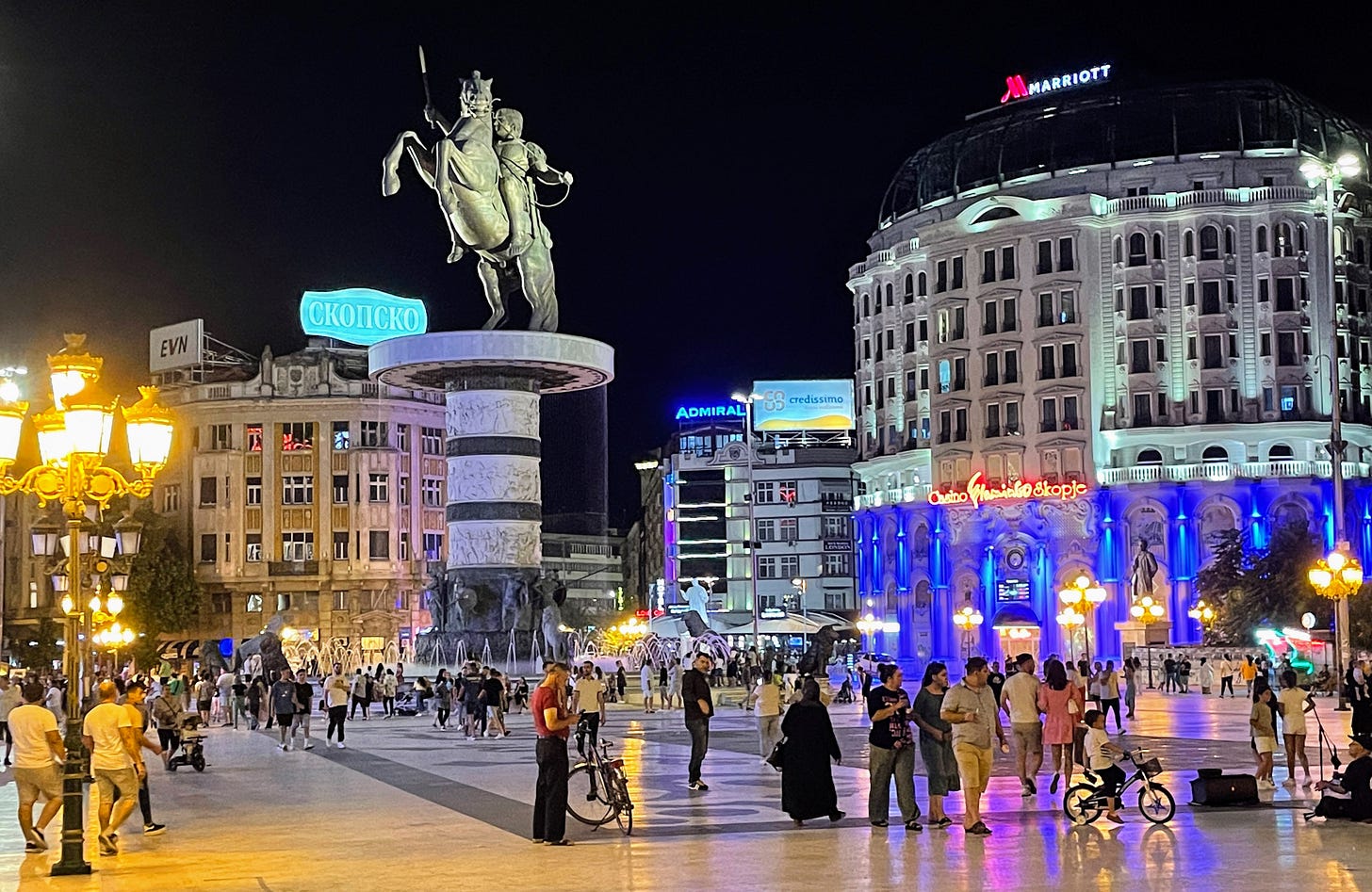North Macedonia is one of the 5 or 6 (depending on how you count Kosovo) Balkan countries that are attempting to join the European Union. North Macedonia and Montenegro are the furthest along in membership talks and political changes. But for North Macedonia, a cultural / geographic problem is holding up membership.
Bulgaria has vetoed North Macedonia’s application officially since 2020. First it was the treatment of minorities, specifically Bulgarian minorities, in North Macedonia. The Skopje government responded by passing a law protecting minorities, specifically the very small Bulgarian minority.
Now, Bulgaria is holding up further talks over a linguistic issue. Bulgaria insists that the Macedonian language is simply a form of Bulgarian. This is a solvable issue. But it is not solved now because of internal Bulgarian politics. Competing parties have latched onto this issue, and the current government’s attempts to resolve it, as a point of national pride.
Bulgaria also believes that after the defeat of the Ottoman Empire in the Balkans 150 years ago, Bulgarians were in the land we now call North Macedonia. The region was primarily taken by the Serbians, with Bulgarian claiming part of the country. Bulgaria now claims that this was theft, compounded by the Yugoslavian decisions to make Macedonia a separate republic in the country.
This is the second major roadblock that has been thrown up in the last 5 years that has prevented Macedonian - EU talks.
The first problem was with Greece. For decades the problem has been the name “Macedonia”. Greece, a member of the UN and EU, had roadblocked Macedonia for years over its name. Greece believes that the name “Macedonia” and its association with Alexander the Great is based on the Greek province of Macedonia.
For many years, Macedonia was internationally known as FYROM. That is, the Former Yugoslavian Republic Of Macedonia. To appease Greece and to promote the assumption talks with the EU, the official name was changed to North Macedonia (the flag was also changed).
Now the newer roadblock with Bulgaria has a “solution” proposed by France. Both sides agreed to move this to a bi-national committee made up of North Macedonian and Bulgarian historians. No surprise, this has not progressed the solution at all. In fact talks are on hold.
AND it brings up a new problem that the EU membership talks no longer are exclusively about political and economic factors, but now countries must please their neighboring countries’ sensibilities. Croatia has already expressed changes in history from the neighboring countries in talks with the EU, Bosnia Herzegovina, Serbia and Montenegro.
The pressing need to change this model is lost in the noise of the Ukraine War.




